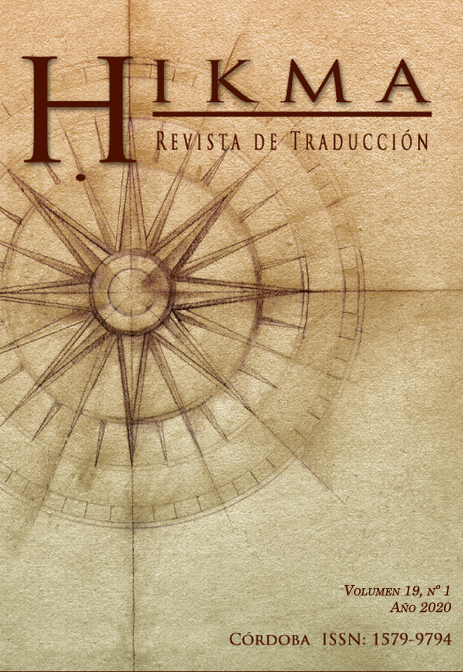Ideology in Advertising: Some Implications for Transcreation into Arabic
Contenido principal del artículo
Resumen
Abstract: Ideology has a twofold sense in advertising. One is general and aims to standardize the consumers' needs and traits by globalized means to persuade them to buy the products. The other is specific whereby the advertisement campaigns can introduce, reinforce and /or challenge some ideological values as of politics, religion, race and gender. To sell globally, advertisements are translated into other languages. This requires adjusting the ideological values to the Target Language (TL) audience. When the ideological dimension of the TL is given priority, transcreation, instead of translation per se, becomes the best choice. Unlike the traditional translator who is expected to be faithful to the Source Language (SL), the transcreator should always maintain proximity to the TL ideology so as to avoid unwanted sensitivities of the TL audience and should adopt creative ideas in order to achieve resonance in the TL. The present paper aims to investigate the implications of advertising ideology for transcreation into Arabic. The global advertisement campaigners seem to be aware that Arabic and Islam represent a unified ideology represented in values of national identity, politics and gender. Most transcreation of these campaigns have achieved both proximity to the TL audience and creativity of ideas that do not clash with the ideological status quo in the Arab World. But despite the laudable reputation of transcreation nowadays in the Translation Studies literature as the best strategy of advertisement translation, it looks like it cannot escape the twofold sense of ideology in those texts. While it does embrace diversity of ideological values of SL and TL, an advertisement campaign transcreation is unable to outbalance the general and more solid ideology of standardizing the consumers' needs and motives.
Descargas
Detalles del artículo

Esta obra está bajo una licencia internacional Creative Commons Atribución-NoComercial-CompartirIgual 4.0.
Los/as autores/as que publican en esta revista aceptan las siguientes condiciones:
- Los/as autores/as conservan los derechos de autor y conceden a la revista el derecho de primera publicación con el trabajo simultáneamente bajo una Licencia de Atribución Creative Commons que permite a otros compartir el trabajo con un reconocimiento de la autoría del trabajo y la publicación inicial en esta revista.
- Los/as autores/as pueden llegar a acuerdos contractuales adicionales por separado para la distribución no exclusiva de la versión publicada del trabajo en la revista (por ejemplo, enviarlo a un repositorio institucional o publicarlo en un libro), con un reconocimiento de su publicación inicial en esta revista.
- Se permite y anima a los/as autores/as a publicar sus trabajos en línea (por ejemplo, en repositorios institucionales o en su sitio web) antes y durante el proceso de presentación, ya que puede dar lugar a intercambios productivos, así como a una citación más temprana y mayor del trabajo publicado (Véase El efecto del acceso abierto).

